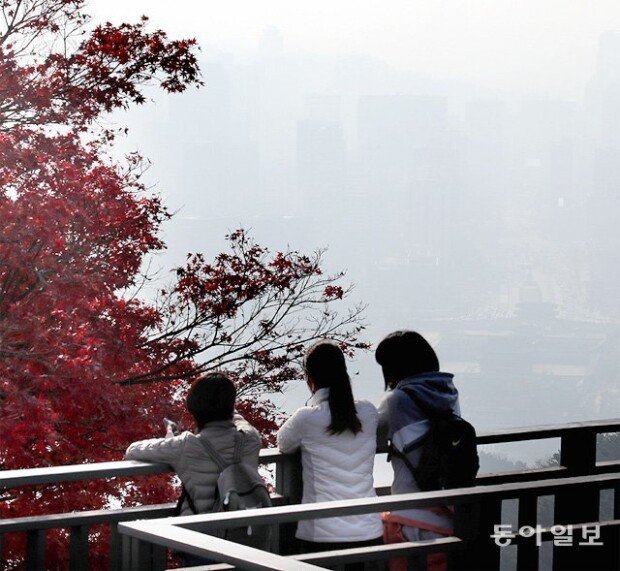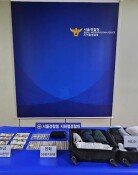Ultrafine dust concentrations surge to bad levels again
Ultrafine dust concentrations surge to bad levels again
Posted November. 28, 2020 07:54,
Updated November. 28, 2020 07:54

Temperature is not the only meteorological component that affects the spread of COVID-19. According to scientific studies, ultrafine dust levels also affect the progression of COVID-19, giving us one more reason to take extra care of ultrafine dust levels this year.
A research team at Harvard University recently analyzed the coronavirus statistics in 3,089 counties across the country and found that there are links between mortality from COVID-19 and particulate matter (PM2.5) exposure. “An increase of 1μg/m³ in the long-term average PM2.5 is associated with a statistically significant 11% increase in a country’s COVID-19 mortality rate,” the study found. The team used COVID-19 death counts (116,747 deaths) accumulated up to June 18 this year and daily PM2.5 concentrations data by each county between 2000 and 2016.
According to a study published in Cardiovascular Research by a research team at the Max Planck Society, about 15% of the world’s COVID-19 deaths could be attributed to long-term exposure to air pollution. Experts say exposure to ultrafine dust causes damage to organs, such as lungs which, in turn, reduces immunity, making us vulnerable to COVID-19 and complications.
Ultrafine dust concentrations are rising to bad levels again in South Korea. Since the concentrations of PM2.5 particles soared to “bad” levels in the Seoul metropolitan and Chungcheong area for the first time in 110 days on Oct. 20, the country is experiencing a cycle of three ultrafine dust-free cold days followed by four warmer days with high levels of ultrafine dust concentrations. Seoul City issued its first ultrafine dust advisory of this fall on Nov. 15.
This is largely attributable to an increased amount of air pollutants both in South Korea and China resulting from the resumption of economic activities that were once suspended due to COVID-19. Ultrafine dust produced in Chinese regions of Beijing, Tianjin, and the Hebei Province fly to the Korean Peninsula when the wind blows from the northwest, negatively affecting the air quality here.
The fact that we are having poor weather conditions this year should also be factored in. South Korea was less affected by ultrafine dust last year since the country had an unusually long period of wind from the east. “We’re expected to have more northwest or western winds carrying ultrafine dust particles this year than the east wind,” said Ban Ki-sung, head of the Kweather Forecast Center.
It is all the more important to wear a mask in situations like this. It is recommended that all people, except for the elderly and children who have difficulty breathing, wear a high-protection face mask in order to prevent coronavirus and ultrafine dust at the same time.
4g1@donga.com







